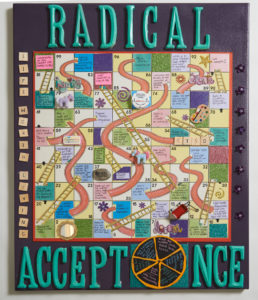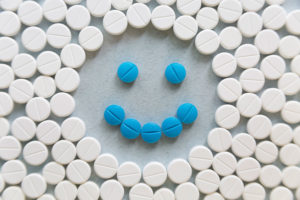Skyland Trail has joined a small group of residential psychiatric treatment organizations that are leading the field in integrating nicotine and tobacco cessation with behavioral health treatment and will contribute to a growing body of evidence and best practices for helping clients simultaneously learn to manage psychiatric symptoms and adopt skills and strategies for long-term health and wellness.
Read More >>DBT teaches that the only way to end suffering, which occurs as a result of pain and non-acceptance, is to accept reality and face the pain head on. Learn three reality acceptance skills that can help individuals find respite from suffering.
Read More >>Sensory Body Awareness is a DBT skill for distress tolerance. Learn how to use practices like paired muscle relaxation, half smiling, and willing hands to navigate stressful situations or intense emotional pain.
Read More >>Learn how to use DBT skills like the STOP Skill, Pros and Cons, Wise Mind ACCEPTS, TIPP, IMPROVE the Moment to weather overwhelming situations or intense emotional or physical pain.
Read More >>Evidence-based psychiatric treatment relies on trust between physicians and their clients to find the best solutions possible for dealing with mental illness. Clients should be receptive to medications that can improve mood and quality of life while their doctors make a medication choice based on the client’s personal history, diagnosis, and lifestyle that has the…
Read More >>We all struggle through times when sleep is in short supply: when college exams, a new baby, or a financial worry prevent us from getting a peaceful night’s rest. But research continues to uncover the consequences of regularly missing out on healthy sleep and the potential perils of sleeping too much. Sleep seems to be…
Read More >>For decades, youth sports in the United States has been an avenue for kids of all ages to make friends, be physically active, challenge themselves, and learn skills such as teamwork, sportsmanship, and the value of hard work—all of which can provide great stepping stones towards personal growth and achievement later in life. When it…
Read More >>Roughly one-third of people with major depressive disorder are affected by treatment-resistant depression, also known as TRD.
Specialized, evidence-based treatment can help people battling treatment-resistant depression reduce their symptoms, improve functioning, and feel better.
Read More >>Three Questions with Dr. Ray Kotwicki, Skyland Trail Charles B. West Chief Medical Officer 1. Why do we see mental illness emerge in young adults? We’re identifying mental illnesses a lot earlier than we used to. Traditionally, young adults in their late teens and early 20s were considered most at risk. Current research indicates that…
Read More >>









